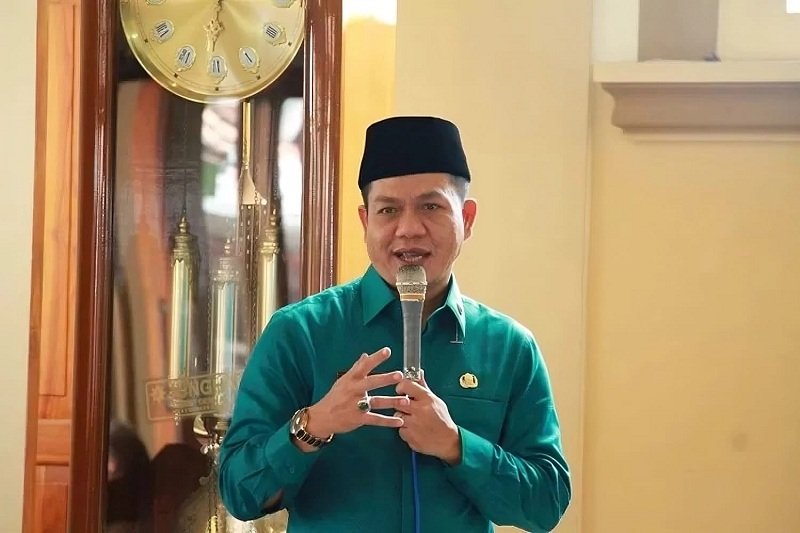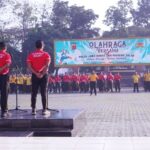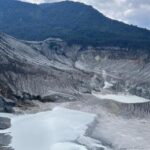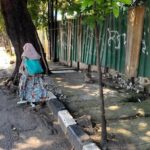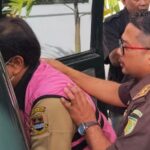SOREANG — The Bandung Regent claims that all damaged roads in the region will be fully repaired within the next three years.
The Bandung Regency Government has allocated up to Rp1 trillion to fund the project. The remaining damaged roads span approximately 500 kilometers. Repairs will be carried out in stages from the 2025 fiscal year to 2027, depending on the region’s financial capacity.
“Our target is clear—within three years, there will be no more damaged roads in Bandung Regency. Everything will be resolved,” said Dadang after a plenary meeting at the Bandung Regency DPRD Building.
According to him, this program is a continuation of previous efforts. Over the past 3.5 years of his leadership, around 1,000 kilometers of roads have been repaired. However, the number of damaged roads has increased again due to the change in status of several village roads to regency roads.
This year, the local government has allocated Rp300 billion to begin repairs. The remaining budget will be evenly distributed in 2026 and 2027.
One of this year’s priorities is the repair of the 22-kilometer Kendeng–Dewata–Londok section in Pasirjambu District. This stretch connects Bandung Regency with Cianjur Regency and requires Rp44 billion in funding.
“We have addressed residents’ requests. The Kendeng to Londok road will be handled this year. The initial four-kilometer section will be paved,” said Dadang.
He emphasized that inter-regency connecting roads are crucial for both economic activities and tourism access. Therefore, he urged support from the West Java Provincial Government and nearby companies through CSR funds.
The Head of the Bandung Regency Public Works and Spatial Planning Office, Zeis Zultaqawa, confirmed that the increase in road damage was triggered by the change in status of village roads to regency roads. Out of a total of 1,500 kilometers of regency roads, around 1,000 kilometers are already in stable condition.
“There are still 500 kilometers that need attention. Following the Regent’s directive, all are targeted for completion within three years,” said Zeis.
Bandung Regency DPRD Building
The Bandung Regency DPRD (Regional People’s Representative Council) Building is the legislative office for the local government of Bandung Regency, West Java, Indonesia. It serves as the center for regional policymaking and governance, reflecting Indonesia’s democratic system. While specific historical details about the building itself are limited, it represents the administrative development of Bandung Regency in the post-independence era.
Kendeng–Dewata–Londok section
The Kendeng–Dewata–Londok section is part of the Meratus Mountains in South Kalimantan, Indonesia, known for its rich biodiversity and geological significance. This area is culturally important to the indigenous Dayak communities, who consider it sacred and rely on it for traditional practices and livelihoods. Historically, the region has faced environmental pressures from mining and deforestation, prompting conservation efforts to protect its ecological and cultural heritage.
Pasirjambu District
Pasirjambu District is a subdistrict located in Bandung Regency, West Java, Indonesia, known for its scenic tea plantations and cool highland climate. Historically, the area has been a significant center for tea production since the Dutch colonial era, contributing to Indonesia’s agricultural economy. Today, Pasirjambu attracts tourists for its natural beauty, including waterfalls and the nearby Mount Patuha.
Bandung Regency
Bandung Regency, located in West Java, Indonesia, is a scenic region known for its lush highlands, tea plantations, and volcanic landscapes. Historically, it was a key area during the Dutch colonial era, with the famous **Asia-Africa Conference** held in Bandung city in 1955, symbolizing post-colonial solidarity. Today, it attracts tourists with its cool climate, cultural heritage, and attractions like the Tangkuban Perahu volcano and Ciwidey hot springs.
Cianjur Regency
Cianjur Regency is a region in West Java, Indonesia, known for its scenic landscapes, fertile farmland, and cultural heritage. Established in the 17th century during the Mataram Sultanate’s rule, it became a center for agriculture, particularly rice production, and is famous for its traditional Sundanese culture. Key attractions include the Puncak Pass, tea plantations, and the historic Cianjur Grand Mosque, reflecting its blend of natural beauty and historical significance.
West Java Provincial Government
The West Java Provincial Government is the administrative body governing West Java, Indonesia, established after the country’s independence in 1945. It oversees one of Indonesia’s most populous and culturally rich regions, known for its Sundanese heritage, vibrant arts, and natural attractions like Bandung and the Pangandaran coast. The government plays a key role in regional development, preserving local traditions while promoting economic growth.

